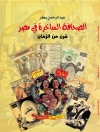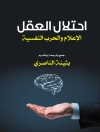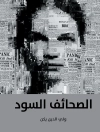Media, Markets, and Morals provides an original ethical
framework designed specifically for evaluating ethical issues in
the media, including new media. The authors apply their account of
the moral role of the media, in their dual capacity as information
providers for the public good and as businesses run for profit, to
specific morally problematic practices and question how ethical
behavior can be promoted within the industry.
* Brings together experts in the fields of media studies and
media ethics, information ethics, and professional ethics
* Offers an original ethical framework designed specifically for
evaluating ethical issues in the media, including new media
* Builds upon and further develops an innovative theoretical
model for examining and evaluating media corruption and methods of
media anti-corruption previously developed by authors Spence and
Quinn
* Discloses and clarifies the inherent ethical nature of
information and its communication to which the media as providers
of information are necessarily committed
Innehållsförteckning
Acknowledgments.
1 Introduction.
2 Information Ethics as a Guide for the Media: Old Tricks for
New Dogs.
3 The Business of the Media and the Business of the Market.
4 Professionalism in Behavior and Identity.
5 A Conflict of Media Roles: Advertising, Public Relations, and
Journalism.
6 Corruption in the Media.
7 Two Dimensions of Photo Manipulation: Correction and
Corruption.
8 Promoting, Codifying, and Regulating Ethics.
9 Moral Excellence and Role Models in the Media.
Index.
Om författaren
Edward H. Spence is Senior Research Fellow at the Centre for Applied Philosophy and Public Ethics (CAPPE), Australia, and Research Fellow at the 3TU Centre for Ethics and Technology, Netherlands. He also teaches media ethics in the School of Communication and Creative Industries at Charles Sturt University, NSW, Australia. He is the author of Advertising Ethics with Brett Van Heekeren (2005), Corruption and Anti-Corruption: A Philosophical Approach with Seumas Miller and Peter Roberts (2005), Ethics Within Reason: A Neo-Gewirthian Approach (2006), and co-editor of The Good Life in a Technological Age (forthcoming) with Philip Brey and Adam Briggle.
Aaron Quinn is Assistant Professor of Journalism at California State University, Chico. He has published work in academic journals including The Journal of Mass Media Ethics and The International Journal of Applied Philosophy, and contributed chapters published by Oxford University Press and Cambridge Scholars Press. He previously worked as a newspaper and magazine reporter, photographer and editor.
Andrew Alexandra is Senior Research Fellow and Director of the Australian Research Council funded Special Research Centre for Applied Philosophy and Public Ethics (CAPPE) at the University of Melbourne. He has published Police Ethics, co-authored with J. Blackler and S. Miller, (1997, 2006), Private Military Companies: Ethics, Theory and Practice, co-edited with D. Baker and M. Caparini, (2008), and Integrity Systems for Occupations, co-authored with Seumas Miller, (2010).
Anne Dunn is Associate Professor in the Department of Media and Communications at the University of Sydney, and was Acting Dean of the Faculty of Arts from 2009 to 2010. She has written on media ethics for academic journals including Ethical Space and is co-author with H. Fulton, R. Huisman and J. Murphet of Narrative and Media (Campbridge University Press 2005). She spent more than 20 years working as a presenter, media researcher, journalist, producer and director for commercial television, SBS and for the ABC. Her work includes award-winning television and film documentaries.












